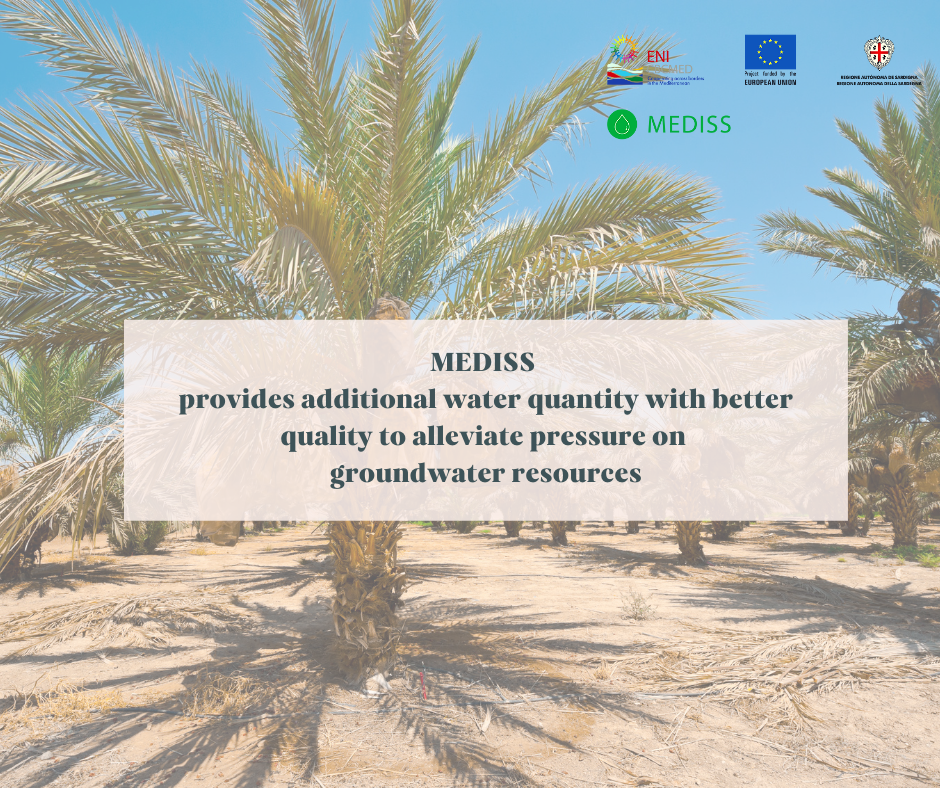Palestine: MEDISS provides additional water quantity with better quality to alleviate pressure on groundwater resources

Jericho and the Jordan Valley (Palestine) are suffering a decline of underground water resources used in all water uses including irrigation which is taking the bulk of available underground water resources.
Recently, In Jericho and the Jordan Valley research on water salinity effect on date palm growth and productivity showed that water with EC of 4 mS/cm and above can severely limit plant growth, reduce production, and affect the quality of the fruits. Generally, plants are not able to uptake more than 35% of the available soil moisture.
The average quantity of water available for each mature and fully productive date palm, in the study area, is at a maximum of 60 m3 per year. But according to the farmers, an amount of 100 m3 per year would increase production by more than 30%.
In order to save water, all farmers use the drip irrigation system. The flow rate of drippers in most farms is 8 liters/hour. However, Farmers do not use pressure-compensated drippers, which would guarantee high uniformity of water distribution, because the poor quality of the water would clog it.
MEDISS project, funded and supported by the ENI CBC MED Cooperation Across Borders in the Mediterranean, contributes to improving water quantity and quality, in order to alleviate the pressure on the limited groundwater resources, blending treated municipal wastewater with saline water and with wadi fresh water.







